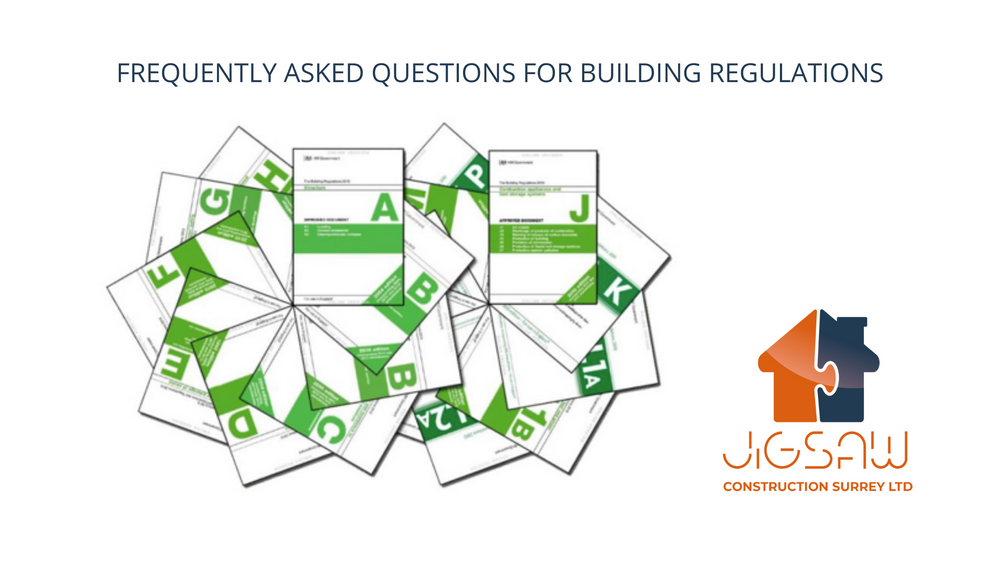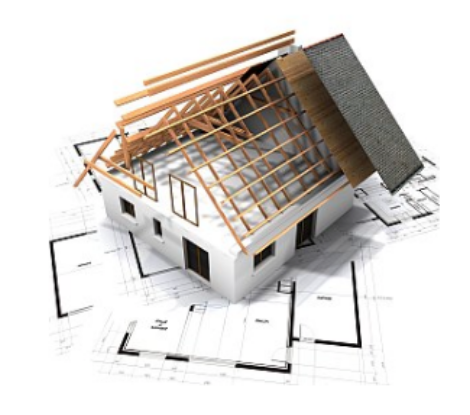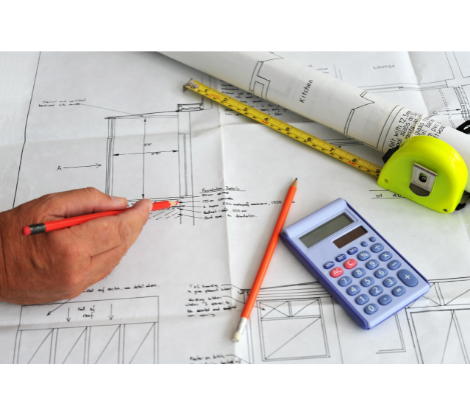Frequently asked questions for building regulations

Building control helps ensure that all building work carried out meets Building Regulations . These are the standards, supported by Approved Documents, set out to protect the health and safety of people within built environments. Meeting these requirements is the responsibility of the persons undertaking the building work and the owner of the building. Subsequently all building work must be independently verified to certify all Building Regulations have been successfully met.
As a property maintenance and construction company, our seasoned builders and installers are often questioned about building regulations. As such, we have put together this list of frequently asked questions. If you are looking to have an extension built or to amend the layout of your property, we hope you will find this useful.

Q. What does a building control inspector check on site?
A . Every project is different, but regardless of the level of complexity involved on any given site, the role of a building control inspector is to check that all aspects of construction comply with the regulations. They will inspect foundations, structural issues, damp-proofing, heating and ventilation, drainage and sanitation, accessibility, fire protection and more. Building control teams consult with building owners, developers and designers on the design and specifications of buildings often before any construction work begins. As building work progresses, inspections will be carried out at various stages in the development in order to check completed work.

Q. Who can I use for my building control?
A. In England and Wales, you can use either a local authority or an approved inspector. Approved inspectors are private companies that are registered by the , Construction Industry Council Approved Inspector Register (CICAIR) on behalf of the English and Welsh Governments to check building work complies with regulations. If you choose an approved inspector for your project, they must inform the local authority by submitting an initial notice.
Q. I want to build an extension to my home, do Building Regulations apply?
A. Yes - but a porch or conservatory built at ground level and under 30 sq.m in floor area is exempt, provided that the glazing complies with the safety glazing requirements of the Building Regulations (Part K) and thermal separation from the main dwelling is maintained and the space has independent heating.
You can speak to a Building Control Surveyor for further information on safety glazing etc. It is advisable to ensure that a conservatory is not constructed so that it restricts ladder access to windows serving a room in the roof or a loft conversion, particularly if that window is needed as a means of emergency escape in case of fire.
Q. I want to build a garage extension attached to my home; do Building Regulations apply?
A. Yes - but a car port extension, open on at least two sides and under 30 sq.m. in floor area, is exempt. You should ensure a car port does not interfere with the proper working of a low-level flue from an oil or gas appliance.
Q. I want to build a detached garage under 30 sq.m. in floor area, do Building Regulations apply?
A. No - the building will be exempt from the regulations providing it is: -
- under 30 sq.m. in floor area.
- single storey and does not contain any sleeping accommodation.
- built substantially of non-combustible materials or built at least 1m from any boundary.
Q. Will the Building Regulations apply to an internal alteration within my home or other type of building?
A. Yes- very likely. The regulations specify what forms of alteration amount to ‘material alteration’ and are therefore ‘Building Work’, taking account of the potential for the proposed work to adversely affect compliance of the building with specific requirements.
On this basis the regulations are very likely to apply if your project:
- will involve alterations to the structure of the building (for example, the removal or part removal of a load bearing wall, joist, beam or chimney breast)
- will affect escape or other fire precautions, either inside or outside the building
- will affect access or facilities for disabled people.
On the assumption that the regulations do apply, all the work involved in the alteration must comply with all the appropriate requirements.
Q. Do I need approval for Electrical Work?
A. The Part P Regulations concerning electrical work apply mainly to dwelling houses and flats, including new circuits serving gardens, outbuildings such as sheds, detached garages and greenhouses. The design and installation of electrical installations associated with these dwellings falls under the Building Regulations.
The rules have been introduced to:
- reduce the number of deaths, injuries and fires caused by faulty electrical installations
- prevent cowboy builders leaving electrical installations in an unsafe condition
If you do not follow the Building Regulations:
- electrical work undertaken may not be safe
- you may have difficulty selling your home if you are not in possession of the correct certificates
- we may insist you put right faulty work
Q. Why should I use an installer who is registered with a competent person scheme?
View the competent person register (external link) for more information.
- Members of schemes can deal with all the new rules for you
- Members are qualified to carry out electrical work
- Members will give you a certificate to confirm their work follows the new rules
- You will not have to pay Building Control charges
- You will have the option of taking out an insurance-backed guarantee for the work
- You will have access to a formal complaints procedure if you are not happy with the work.
Q. What happens if work is found to contravene the Building Regulations?
If a person carrying out building work contravenes the Building Regulations, the local authority or another person may decide to take them to the magistrates' court where they could be fined for the contravention, and a further daily fine for each day the contravention continues after conviction.
This action (under section 35 of the Building Act 1984) will usually be taken against the builder or main contractor and proceedings should be taken within six months of the offence. Alternatively, or in addition, the local authority may serve an enforcement notice on the owner requiring them to alter or remove work which contravenes the regulations. If the owner does not comply with the notice the local authority has the power to undertake the work itself and recover the costs from the owner.
To find a comprehensive list of regulations, visit this website . To find out specific planning permission requirements www.doineedplanningpermission.co.uk
If you have a question for your building project which we have not answered, get in touch , hello@jcs-ltd.co.uk




